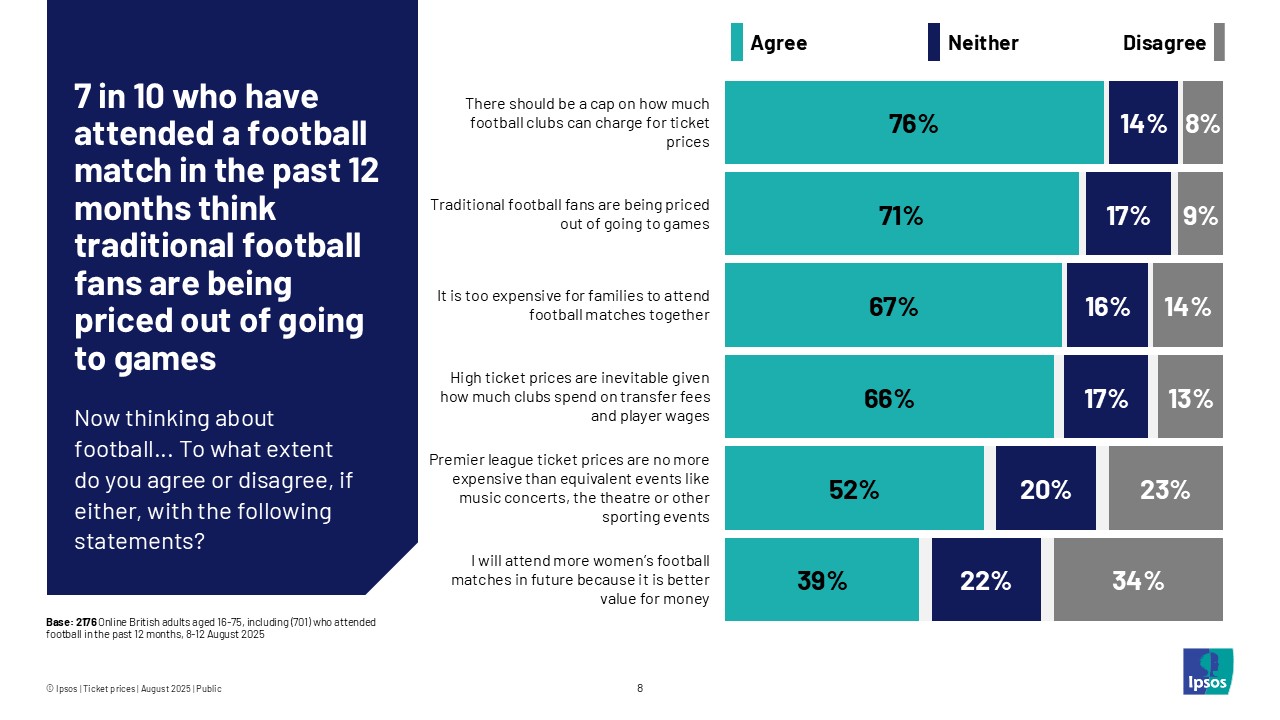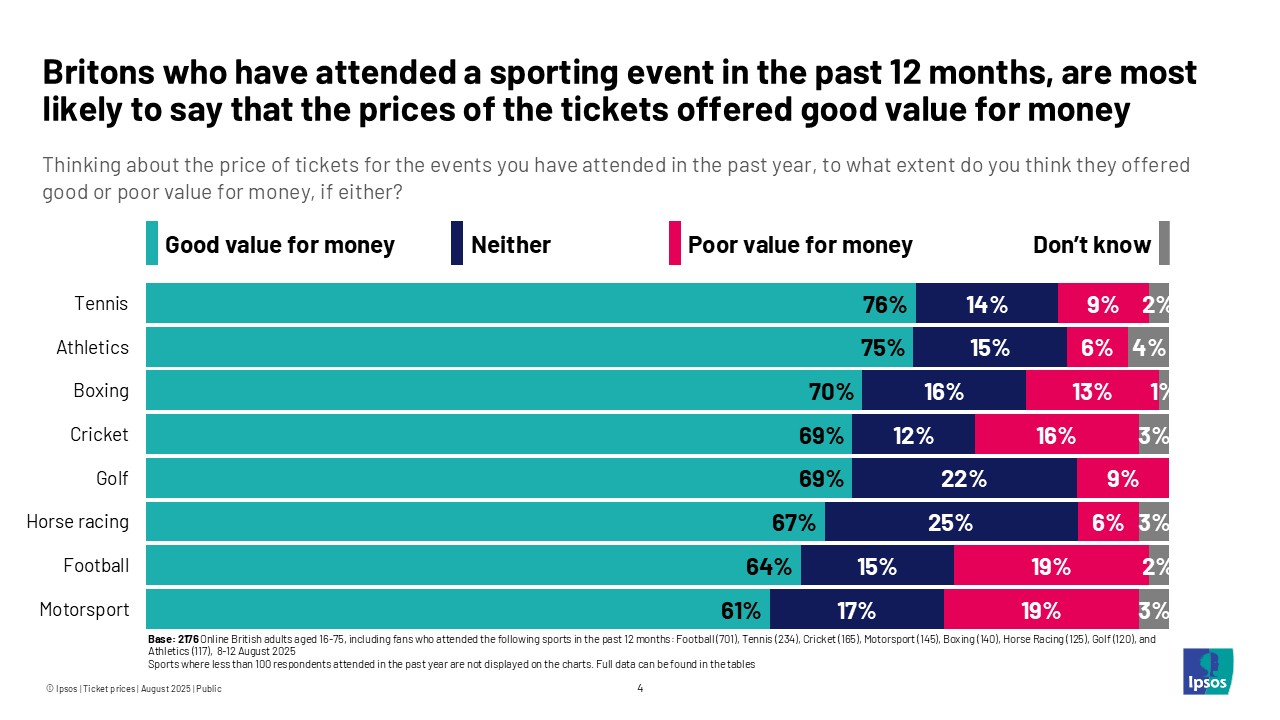Seven in ten football fans believe traditional supporters are being priced out of the game
New research from Ipsos in the UK ahead of the start of the Premier League season reveals that a significant majority of football fans who have attended a match in the last year feel the escalating cost of tickets is excluding traditional supporters.
The new poll highlights a significant tension between the sport's popularity and perceptions of its value. While nearly three in ten (29%) Britons have attended a live football match in the past 12 months – more than any other sport – seven in ten (71%) of these attendees agree that traditional fans are being priced out of going to games. This sentiment is further underscored by the 76% of football attendees who believe there should be a cap on how much clubs can charge for tickets.
Key findings include:
- The high cost of loyalty: The public perceives football as the sport where prices have risen the most, with 58% believing the average fan is paying more for a ticket today than five years ago. This is significantly higher than for any other sport, including motorsport (43%) and tennis (39%).
- Cap on ticket prices: Three in four (76%) think that there should be a cap on how much football clubs can charge for ticket prices. Seven in ten (71%) think that traditional football fans are being priced out of going to games.
- Families feeling the pinch: The cost is a particular barrier for families. Two-thirds (67%) of football attendees agree that it is too expensive for families to attend matches together, raising concerns about the next generation of fans being able to experience live football.
- A sense of resignation among fans: Despite the concern, there's a sense of resignation among football attendees. Two in three (66%) agree that high ticket prices are inevitable given how much clubs spend on transfer fees and player wages. Furthermore, just over half (52%) believe Premier League ticket prices are no more expensive than equivalent events like music concerts or the theatre.

- Value perception divide: While a majority (62%) of those who have recently attended a men's football match feel the tickets offer good value for money, the wider public is split, with 31% saying they offer good value and 32% poor value (23% don’t know). In contrast, 57% of those who have recently attended a women’s game feel it offers good value for money, with 35% of wider public agreeing (33% don’t know). 39% say that they will attend more women’s football matches in future because it is better value for money.
- Impact on attendance: Over a third (37%) of football attendees say that current prices mean they attend live events less often. This figure is similar for fans of motorsport (39%), golf (37%), and cricket (37%).
- Tennis and athletics lead on value: When it comes to delivering the best value, other sports are outperforming football. Three-quarters of those who have attended tennis (76%) and athletics (75%) in the past year believe the tickets offered good value for money. This compares to 64% of football attendees and 61% of motorsport attendees.

- Majority of Britons not attending live sport: Despite the passion for sport in the UK, a majority of the public (59%) have not attended a live event for any of the major sports surveyed in the past year.
Commenting on the findings, Holly Day, Research Manager at Ipsos said:
Our research paints a clear picture of the financial pressures facing sports fans today, particularly in football. While the game remains the nation's favourite spectator sport, there is a palpable sense that the rising costs are making it inaccessible for many loyal, long-standing supporters.
The fact that three-quarters of recent match-goers favour a price cap is a powerful message to clubs and governing bodies. As clubs balance the books, they must also consider the risk of alienating their core fanbase and the potential long-term consequences for the sport's grassroots connection.
Technical note:
- Ipsos interviewed a representative sample of 2,176 adults aged 16-75 across Great Britain. Polling was conducted online between the 8th-12th August 2025.
- Data are weighted to match the profile of the population. All polls are subject to a wide range of potential sources of error.




